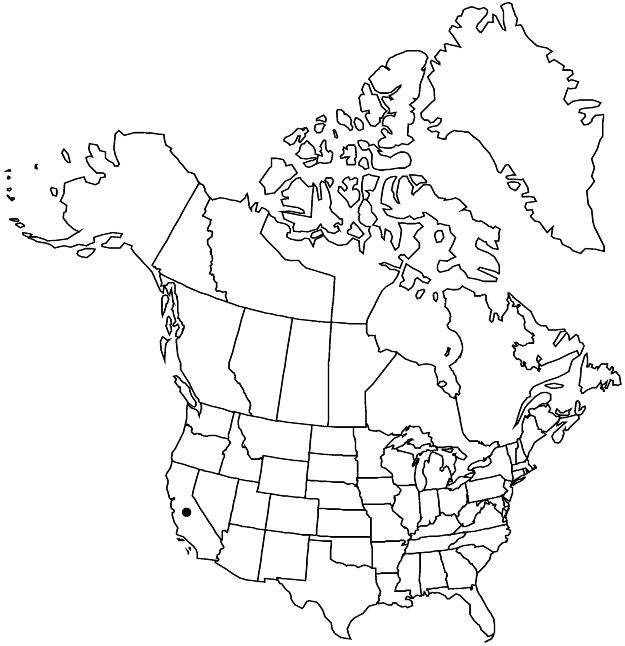Hesperolinon adenophyllum
in N. L. Britton et al., N. Amer. Fl. 25: 85. 1907.
Herbs, (10–)15–25(–50) cm, glabrous except puberulent on stems just distal to nodes; branches from well-developed main axis, alternate, widely spreading. Leaves opposite or proximal whorled; stipular glands absent; blade linear to lanceolate, 5–15(–20) × 1.5–2.5 mm, base keeled, clasping, margins with stalked glands on teeth in 1–2 rows. Inflorescences: cymes monochasial to dichasial (scorpioid or helicoid), open, internodes long, flowers widely scattered along thin branchlets; bract margins with stalked glands. Pedicels (3–)5–10(–15) mm, to 25 mm in fruit, spreading at 45–90° angle, not bent at apex. Flowers: sepals erect, tips spreading, lanceolate, 2–3 mm, subequal, marginal glands few or absent, surfaces glabrous; petals horizontally spreading, yellow, often veined or tinged orange, fading white, oblanceolate, 3–4(–5) mm, apex notched; cup yellow, rim lobed between filaments and petal attachments; stamens exserted; filaments 2.5–3.5(–4) mm; anthers yellow, dehisced anthers 1.2–1.5 mm; ovary chambers 6; styles 3, yellow, 2.5–3(–4) mm, exserted. 2n = 36.
Phenology: Flowering May–Aug.
Habitat: Chaparral and brushy slopes on serpentine soils.
Elevation: 150–1000 m.
Discussion
Hesperolinon adenophyllum is found in the north and central North Coast Ranges, especially in Lake and Mendocino counties. It can be distinguished from all other species in the genus except H. drymarioides in having glandular-serrate leaves. The leaves of H. adenophyllum are lanceolate with large glands in one or two rows on the margin, compared with H. drymarioides, which has ovate to orbiculate leaves with several rows of relatively small, delicate glands on the margins.
Selected References
None.
